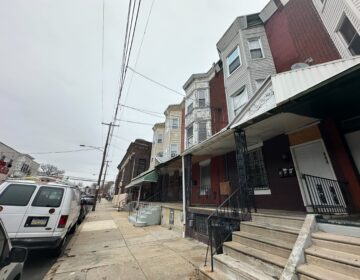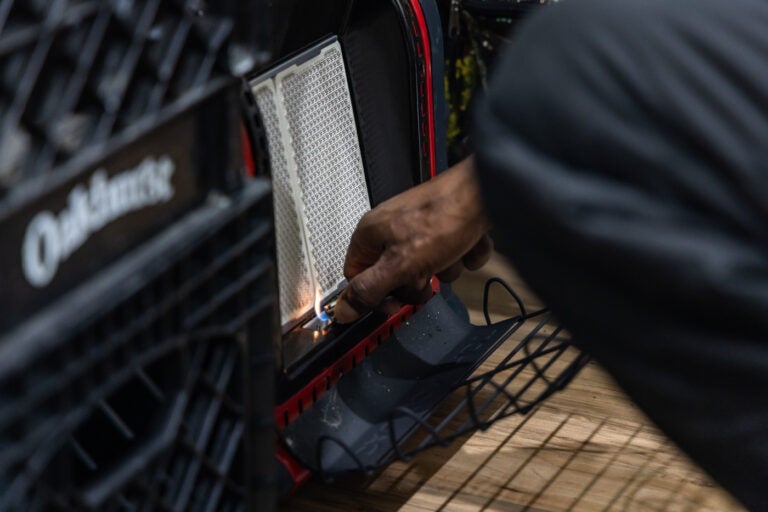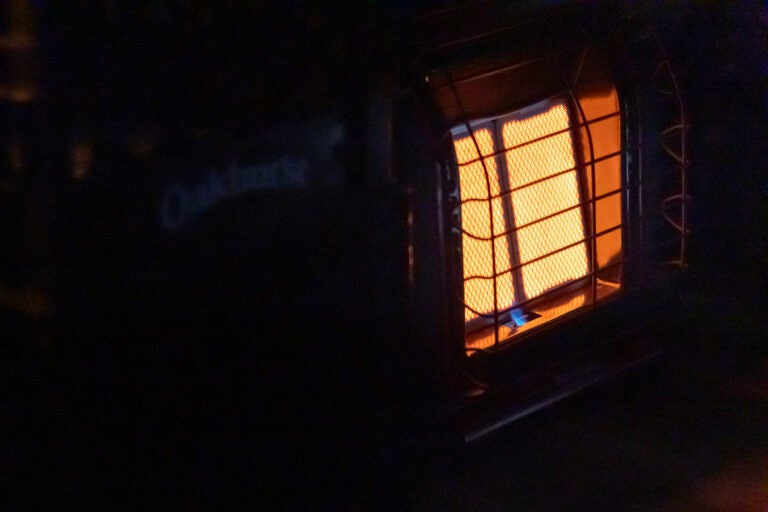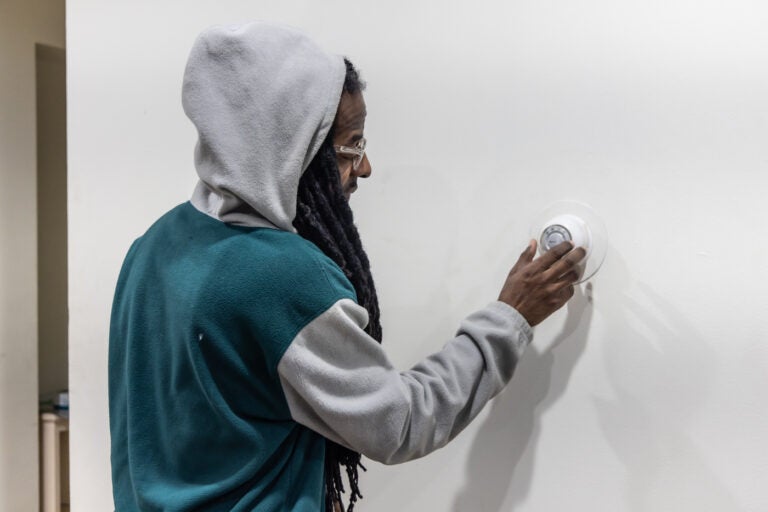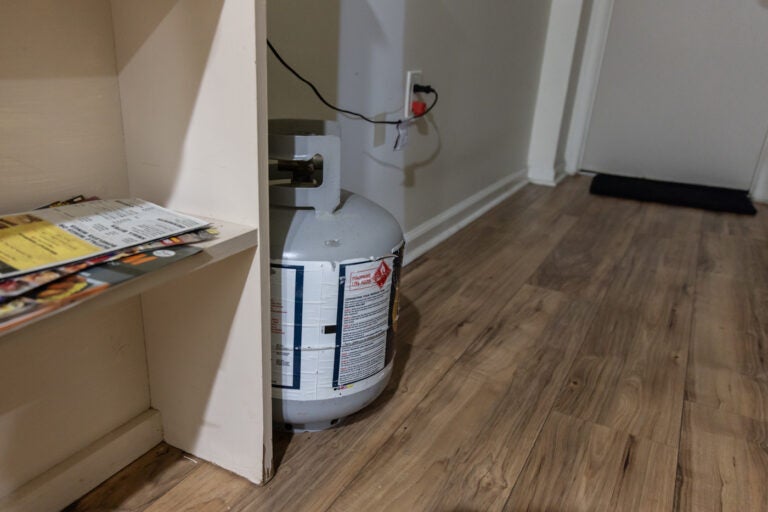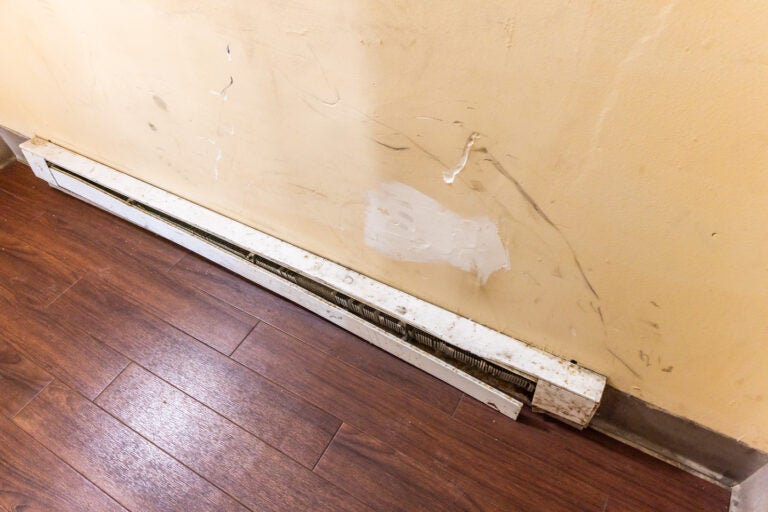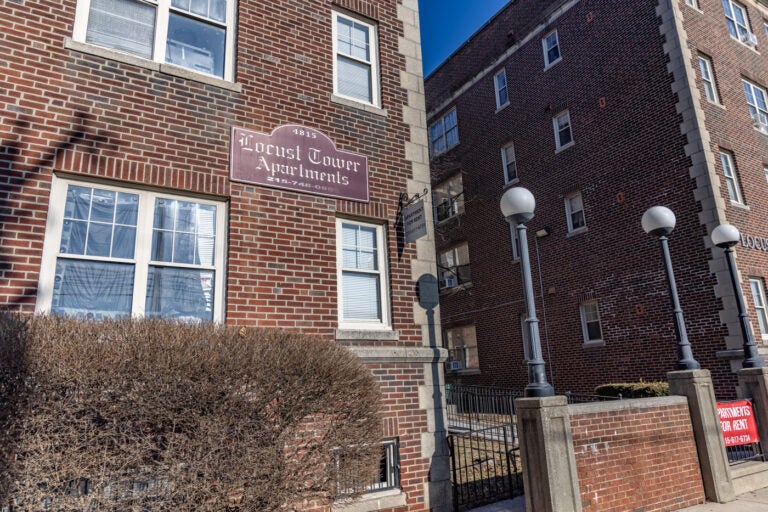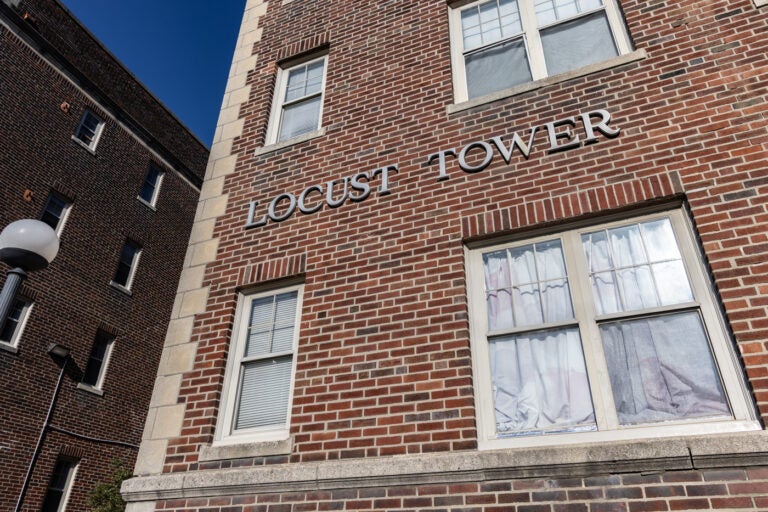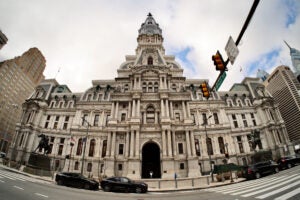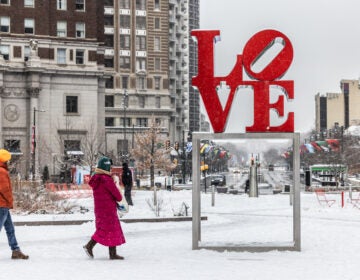West Philly tenants say they’ve had no heat — and no answers — for months
Locust Towers apartment tenants say they don’t understand why they don’t have heat this winter and that their landlord is ignoring their complaints.
From Philly and the Pa. suburbs to South Jersey and Delaware, what would you like WHYY News to cover? Let us know!
Naim Scott didn’t realize he would be spending this winter without heat when he promised to take care of his uncle living at Locust Towers in West Philadelphia.
Several months ago, Scott moved into the two-bedroom apartment to ensure his uncle, Richard, who is an older adult and has complex medical issues that include seizures, had help with everyday tasks and keeping up with his care.
Since October, one of his chores has been turning on propane-powered space heaters to keep the apartment from freezing.
“It’s very uncomfortable — especially for my 65-year-old uncle,” Scott said. “He typically walks around in layers.”
On cold nights, the pair bundle up in their respective bedrooms to stay warm.
“We’re in there sleeping in like three, four layers at a time,” he said. “We only have heaters in each bedroom, so the kitchen and the bathrooms are pretty cold with drafty windows. [My uncle] doesn’t like to use the shower in there because it’s cold in the bathroom.”
If the unit that provides heat to Scott’s apartment is broken and not repaired, it is against the law in Philadelphia.
Any business that rents a property must provide a centralized heating unit capable of consistently bringing the ambient air temperature to at least 68 degrees in the bathroom, bedrooms and kitchen between Oct. 1 and April 30 each year — without ancillary heating units like space heaters or cooking devices.
Despite months of complaints to the landlord, the Scotts still don’t have heat in early January, after the recent snowstorm and during a particularly frigid spell.
On Jan. 6, he filed a complaint with 311, the City of Philadelphia’s public service system, to request an inspector.
“There’s been no sort of supervision at the property. All I see is the website every month where we pay the rent and that’s it,” Scott said. “They collect the rent, but they don’t live up to their responsibilities as the property management.”
Several tenants at Locust Towers contacted 311, starting in October 2024. However, the first time a Licenses and Inspections representative visited one of the units to verify a no-heat complaint was Jan. 6 after being contacted by WHYY News.
It was not clear why, as L&I did not address the delay in its response on Jan. 8.
The city’s procedure for no-heat complaints between October and April is to respond to any 311 complaints within three business days. And if the inspector determines the rental has no heat they will issue a violation that gives the landlord 10 days to fix the issue. Most often, there are several violations in addition to lack of heat that may prompt any cease and desist order to vacate the apartment. If tenants are facing a situation where the city has determined the property is unsafe and the landlord doesn’t fix it, they are typically referred to the Office of Supportive Housing for help.
An L&I Code Enforcement Supervisor inspected Locust Towers and verified the building heating system was functioning on Jan. 6 and visited several tenants who had working heat with the exception of those with shut off gas.
The owner of Locust Towers claims the heating units are not broken, but tenants don’t have heat because of unpaid utility bills. Gas provider Philadelphia Gas Works (PGW) told WHYY News it cannot disclose account information for privacy reasons.
If the property owner is accurate, then the landlord may be complying with city law and not violating the lease because tenants are responsible for paying their gas and electric bills.
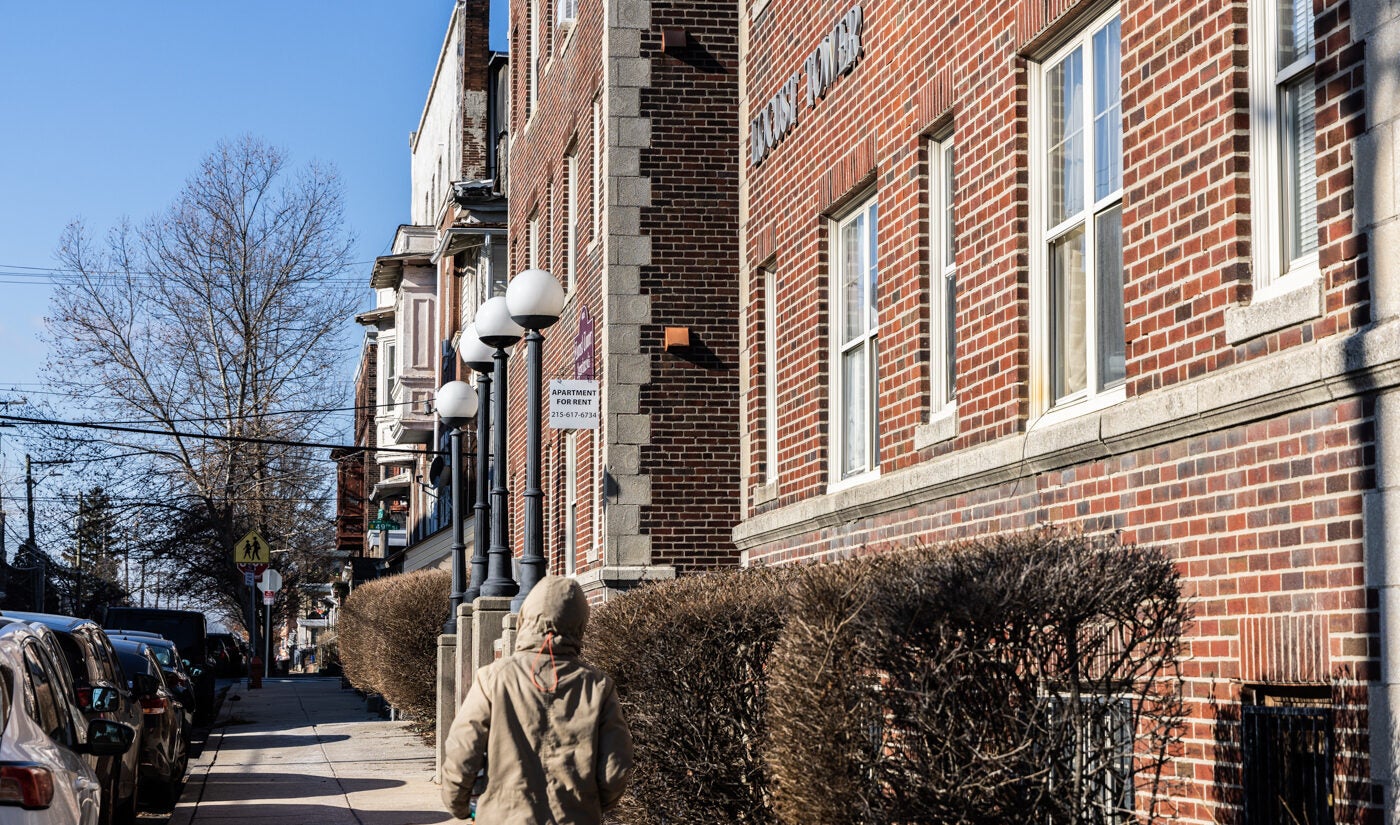
No gas, no heat at home
Scott says the apartment’s lack of heat isn’t the only issue with the residence. There is also a non-functioning elevator and door buzzer, a fridge on the fritz, stove functionality issues, pests, mold and other management issues.
His uncle has lived at the apartment complex, paying about $1,200 a month, for the past few years. Scott said his uncle has never been threatened with eviction for lack of payment, nor is he more than one month behind on his rent as of January 2025.
Scott said there is a past-due gas bill, but it’s not in his uncle’s name, and it might be linked to a prior tenant of the property. But PGW, he said, won’t start a new account in his uncle’s name. Scott has not received a shut-off notice from PGW in anyone’s name for the unit as of January 2025.
“Ideally, I would like [the city] to figure out what’s going on with the heating situation first because we’re still getting a bill from a previous tenant,” he said. “The building [property owner] needs to figure it out before they collect any more rent. The money needs to go to escrow from every tenant from every unit that’s not up to proper living conditions until things are resolved.”
The heating unit in the apartment does not function despite the thermostat being turned up, Scott said.
His maintenance requests have yet to be resolved, even after he submitted them through the company’s online portal, where he makes monthly rent payments.
Instead, he was told to contact a personal phone number of a maintenance supervisor, who he said was unprofessional, rude and has not appeared at the apartment for months to fix anything after an early morning text exchange.
“There are a lot of seniors in the building and it’s unfair to them because they are afraid to complain,” Scott said.
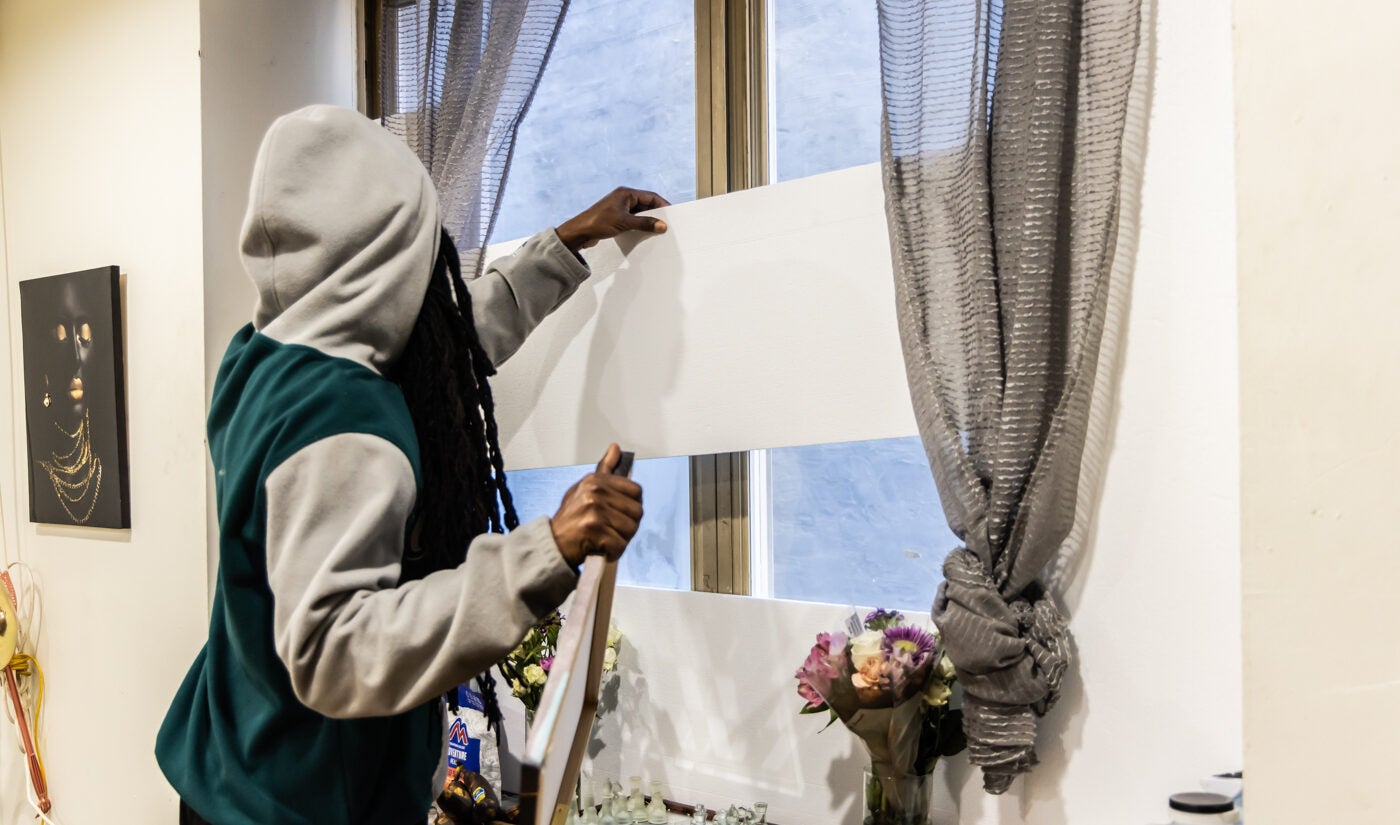
More questions than answers
To protect consumers in Philadelphia, there’s a utility shut-off moratorium in place between December and March each year.
While it’s possible that PGW could have cut off service to Scott’s unit and several of his neighbors, that’s an unlikely scenario, Tenant Union Representation Network housing attorney Riquan King told WHYY News.
“If lack of heat is in fact the result of a utility shut-off for an unpaid bill that the tenant is responsible for, in this instance, the landlord would not be violating PA law or any lease terms,” King said.
Locust Towers management claims that PGW did shut off gas service to one tenant at the property for an unpaid bill dating back to June 2022. The shut-off occurred in June 2024.
The tenant who had service disconnected was Ilese Dunmore, who has lived at the property for nearly a decade.
Dunmore said when she first moved in, there was a property manager on site and there were few issues. But in recent years, especially since the COVID-19 pandemic, the complex has gone downhill, especially the management’s response to maintenance issues, including pests, mold and other problems.
She pays about $850 a month in rent.
Dunmore told WHYY News she thought her utility bills were electric and didn’t realize she had a PGW account. A source with access to records, but unauthorized to share PGW information with the media, confirmed there is a gas account in Dunmore’s name.
The PGW shut-off notice obtained by WHYY News shows a past-due bill of $6,351, but that the service could potentially be restored with a deposit of $120 toward a payment plan in June 2024.
Since October 2024, Dunmore has been without heat and has submitted maintenance requests in the online rental portal. Those issues remain unresolved.
“If you don’t have gas, we can’t provide you with heat,” Locust Towers maintenance supervisor Mike Wade told WHYY News.
Dunmore said she was threatened with eviction if she attempted to withhold rent for any unaddressed maintenance issues, from water damage to mold or lack of heat.
Court records show Dunmore was threatened with eviction at Locust Towers in 2016. Dunmore said she paid the past-due rent then and is not behind on her rent now.
Dunmore has struggled to secure a new written lease from property management. She said the landlord told her that if she didn’t approve an implied month-to-month lease without anything in writing, she could simply leave.
During cold snaps this winter, Dunmore sends her daughter, who suffers from asthma flare-ups, to a family member’s home for safety and warmth.
“At certain times of the night and day it’s below 60,” Dunmore said. “It’s excruciating.”
She sent WHYY News a photo of an indoor thermometer that showed 62 degrees in her apartment this winter, and another of her utility closet with what appears to be a gas-powered heater and an electric water heater.
To stay warm in her two-bedroom apartment, she uses two space heaters.
“I just kind of play ping-pong with the heaters from one room to another until I can afford more,” she said. But even with the space heaters, it’s too cold for her daughter.
“She’s with family on cold nights as her asthma is flaring up,” she said. “People are doing the best they can with what they have, including myself.”
Wade, the maintenance supervisor, confirmed that there were at least six apartments where the gas service was shut off in June 2024 at the complex for nonpayment, including Dunmore’s.
As of January 2025, only one of those units had paid to have gas restored, and the remaining apartments did not have gas service.
But when L&I inspectors swept the building again on Jan. 7, according to Wade, only one apartment said they didn’t have a functioning heater. The tenant told management they were out of the country and previously did not inform them there was an issue with the heat. The company has promised to send a technician on Jan. 8 to fix it.
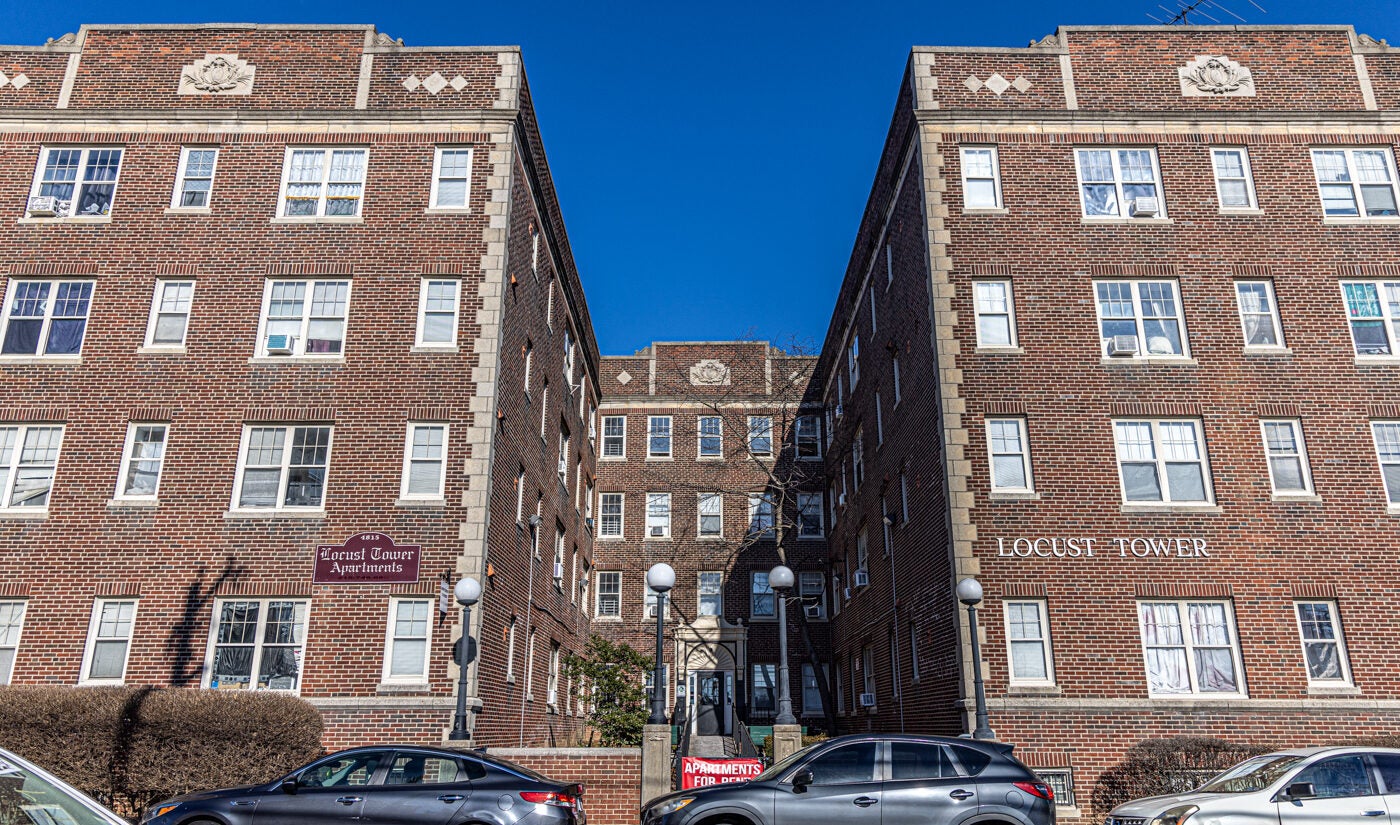
Landlord questions responsibility
Locust Towers’ current owners, Magdim Towers Inc., purchased the property in 2010, for market-rate apartments.
Magdim is controlled by Eliahu Alon, Isaac Jack Azran and Shai Argaman. Records show that these property owners control dozens of rentals across the city.
When reached by phone on Jan. 6, property owner Azran said Locust Towers had been recently renovated by his maintenance team and blamed any lack of heat on the tenants’ inability to pay their own utility bills, as required by the lease.
Azran defended his maintenance team and management of the property, saying the team dutifully cares for dozens of apartment complexes with satisfied tenants across the city. Later, he sent WHYY News an email after searching for more information about Locust Towers.
“I’m not sure why they do not have heat, or if that’s even the case, but I would confirm that they paid their [utility] bill so that their heat can be operational,” Azran said.
In a separate email, Magdim Towers property management said all its tenants are on month-to-month leases, and tenants are responsible for both gas and electricity while the landlord pays for water.
“We immediately contacted our maintenance team to investigate any potential issues, particularly concerning gas leaks and heating problems,” according to the email, which was signed by a generic management label.
Management claims that neither the gas company nor its team found issues with its infrastructure, and that the L&I inspector this week approved the company’s boiler and heating system.
“This is not a matter of building infrastructure, but a direct consequence of the tenant’s outstanding utility bills. Tenant safety has always been a top priority for us, and we consistently address any issues that arise. We regularly treat the property for pests, and any mold-related concerns are immediately investigated and resolved.”
On Jan. 6, when an L&I inspector arrived to verify the lack of heat in Dunmore’s apartment, management claimed they produced a gas shut-off notice from June 2024, service invoices for the HVAC system and a lease that detailed utility responsibilities.
The company still anticipates being responsible for other L&I violations at the property, such as exit sign damage, self-closing doors maintenance, and updating sprinkler and fire alarm certifications.
It was not immediately clear if L&I issued a violation to the company for the lack of heat at the apartment complex on Jan. 6. Records have not yet been updated as of Jan. 7.
But that’s not the only issue involving unpaid bills. City records show that Magdim Towers owes the city about $204,300 in property taxes.
Records show that about $55,900 of that is for 2025, but it also includes past-due taxes for the 2024 and 2023 tax years. Management asserts that tax reassessment was contested in court.
The company has also been taken to court by the city over unpaid water bills at the apartment complex in recent years, records show.
Insite Construction Inc., a contracting business owned by Eliahu Alon and Isaac Jack Azran, was suspended from operating in Philadelphia by the city for one year, ending July 2023, after the company “repeatedly worked with an expired contractor license and failed to pay department fines.”
Also, the rental license for the Locust Tower apartments became inactive in April 2020, after being issued in February 2011.
It’s unclear whether the company has an active rental license for that property.
Over 100 properties violating heating law
If a property owner with an active rental license does not provide centralized heating units capable of continuously bringing the air temperature to at least 68 degrees between October and April, the city’s Department of Licenses and Inspections can fine the owner at least $2,000 per violation per day.
Property owners typically have about 10 days to fix serious issues, such as no heat, or the city will issue a cease-and-desist order for the rental. That means the property owner can’t collect rent, but the tenant must also leave.
WHYY News on Dec. 24 found more than 100 properties on the License and Inspection department’s list for outstanding violations of the city’s minimum heat laws.
Council member Jamie Gauthier, who represents District 3, where the apartment complex sits, is looking into the issue.
“As a renter myself, I know how important it is to come home to a heated apartment every night,” Gauthier said. “Unfortunately, my office regularly hears from tenants who have been without heat for weeks or even months. Cold kills, which is why the law stipulates landlords must heat rental units during colder months. I will keep working with government agencies to make sure the city quickly, proactively, and effectively enforces heating laws. Having no heat is an emergency, and the government must treat it like one.”
Locust Towers does have individual gas meters and there is natural gas service to the property.
PGW’s service is limited in that there’s an external pipeline it is responsible for. Inside the property, the building owner must maintain the infrastructure.
“Safety is our first priority and PGW complies with all rules and regulations set forth by its regulators to affordably deliver safe, reliable, sustainable service to its customers,” according to a statement from PGW. “PGW offers several options and programs for any of our customers who may be struggling to pay their bills. We will work with them to find a potential solution. Unfortunately due to privacy, we cannot share specific customer account information.”
PGW also operates the LIHEAP program, from which eligible low-income households can get federal grant money to cover heating bills and restore gas service. It’s possible that tenants must go through that program for help getting their heat turned back on.
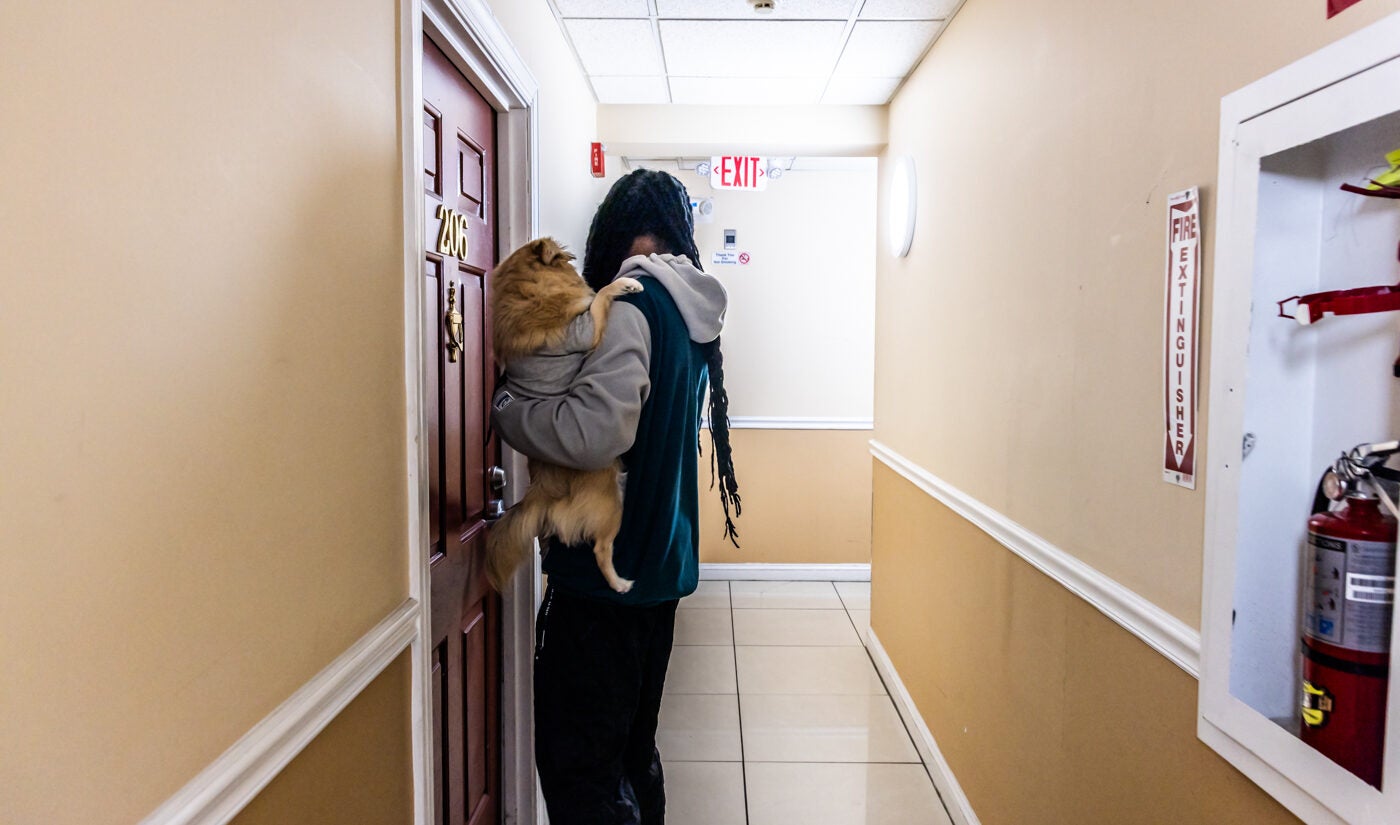
A history of no-heat violations
This winter isn’t the first time that tenants at Locust Towers have complained about lack of heat, city records show.
There were tenant complaints at the complex in 2007, 2009, 2010, 2011, 2013 and 2019, according to 311 records.
L&I inspectors issued violations against the property owner for lack of heat from gas supply cases in 2011 and 2013, records show. But the owner has since complied with the law in those cases, according to the city.
Enduring extreme cold
- Warming centers open: Around 20 sites across Philly offer respite from the cold. Here’s what to know
- Get or give help: Here are extreme cold resources across the Delaware Valley, and here’s how you can help your unhoused neighbors amid frigid temps
- Get prepared: Take these steps to protect yourself from winter weather dangers; and here’s how to keep your pipes from freezing in cold weathe
Waiting in the cold
In the meantime, Scott and his uncle are waiting for an L&I inspector to visit their freezing apartment.
The pair filed a 311 complaint about the lack of heat on Jan. 6. The city promised to respond within three business days and send the information to L&I for review.
Scott said he hopes he and all his neighbors will get their heat restored soon as part of this process.
“I think that [management] should pause the [rent] payments until things are resolved and they should figure out what’s going on with the building as a whole,” he said. “People are living in these horrible conditions and they’re paying premium rates but not getting premium service. It’s unfair.”
Wade, upon learning that the Scott’s unit did not have heat and the apartment’s gas service was not shut off, promised to send technicians to fix the heat on Jan. 8.
Wade said he didn’t have any maintenance records about complaints from heat at the Scott’s apartments and that the online payment portal, while it offers maintenance requests, is not the right system to use. He also said perhaps there wasn’t a request because there’s past due rent owed.
“We have a private company that comes out, and they bill us if anybody says they don’t have heat,” Wade said.
Editor’s note: This story has been updated to clarify that a City of Philadelphia inspector found the central heating system was functional in most units, and that the lack of heat in some apartments may be related to individual utility service shut-offs.
 This story is a part of Every Voice, Every Vote, a collaborative project managed by The Lenfest Institute for Journalism. The William Penn Foundation provides lead support for Every Voice, Every Vote in 2024 and 2025 with additional funding from The Lenfest Institute for Journalism, Comcast NBC Universal, The John S. and James L. Knight Foundation, Henry L. Kimelman Family Foundation, Judy and Peter Leone, Arctos Foundation, Wyncote Foundation, 25th Century Foundation, and Dolfinger-McMahon Foundation.
This story is a part of Every Voice, Every Vote, a collaborative project managed by The Lenfest Institute for Journalism. The William Penn Foundation provides lead support for Every Voice, Every Vote in 2024 and 2025 with additional funding from The Lenfest Institute for Journalism, Comcast NBC Universal, The John S. and James L. Knight Foundation, Henry L. Kimelman Family Foundation, Judy and Peter Leone, Arctos Foundation, Wyncote Foundation, 25th Century Foundation, and Dolfinger-McMahon Foundation.
To learn more about the project and view a full list of supporters, visit www.everyvoice-everyvote.org. Editorial content is created independently of the project’s donors.

Get daily updates from WHYY News!
WHYY is your source for fact-based, in-depth journalism and information. As a nonprofit organization, we rely on financial support from readers like you. Please give today.


